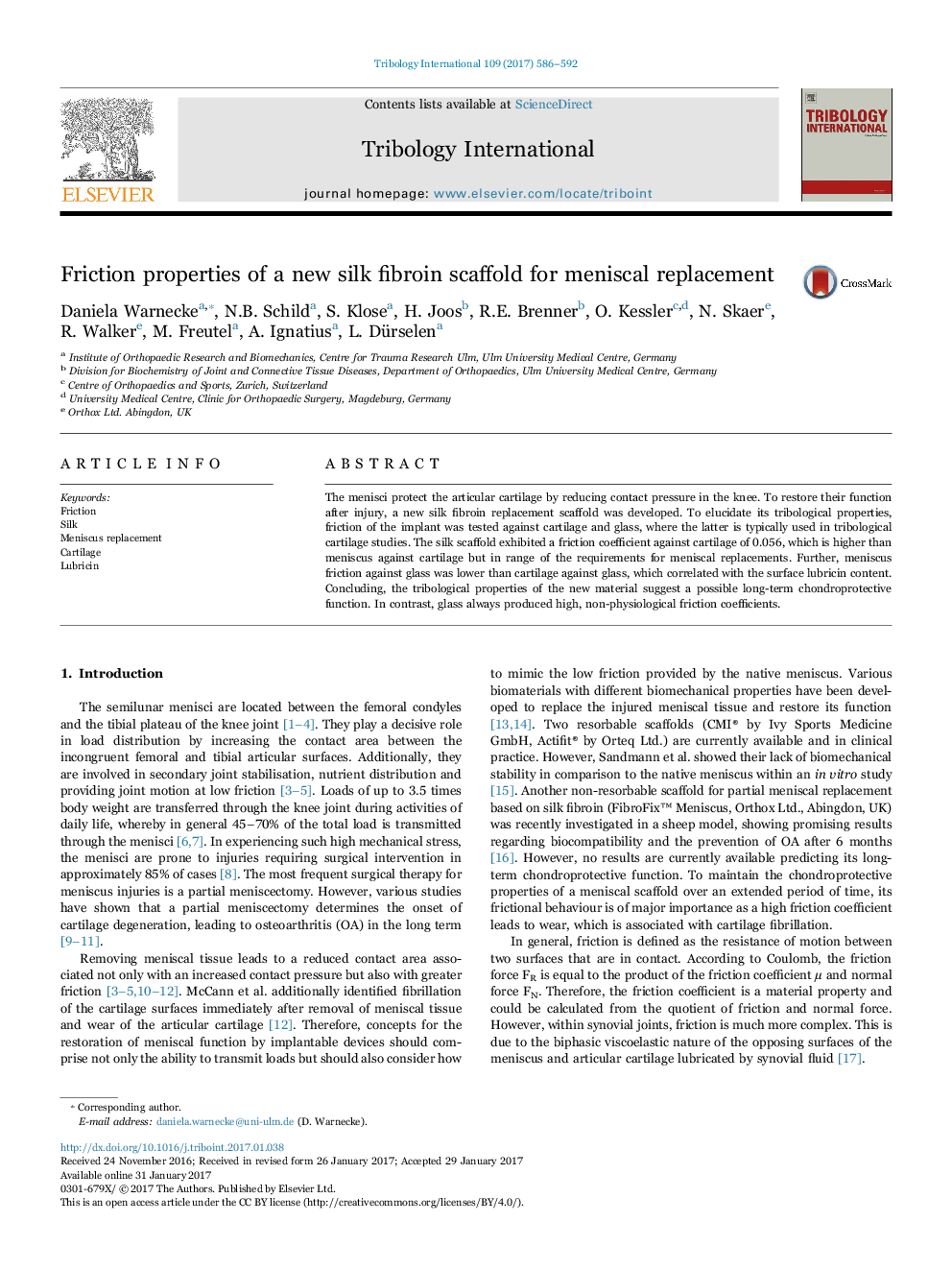| Article ID | Journal | Published Year | Pages | File Type |
|---|---|---|---|---|
| 4986197 | Tribology International | 2017 | 7 Pages |
â¢A new silk fibroin scaffold provides low friction coefficient against articular cartilage.â¢A high friction coefficient is observed when tested against glass due to the missing interstitial fluid load support.â¢Friction studies of non-biological materials, e.g. for implants, should be carried out against articular cartilage.â¢Meniscus has a higher lubricin content on its surface in comparison to articular cartilage.
The menisci protect the articular cartilage by reducing contact pressure in the knee. To restore their function after injury, a new silk fibroin replacement scaffold was developed. To elucidate its tribological properties, friction of the implant was tested against cartilage and glass, where the latter is typically used in tribological cartilage studies. The silk scaffold exhibited a friction coefficient against cartilage of 0.056, which is higher than meniscus against cartilage but in range of the requirements for meniscal replacements. Further, meniscus friction against glass was lower than cartilage against glass, which correlated with the surface lubricin content. Concluding, the tribological properties of the new material suggest a possible long-term chondroprotective function. In contrast, glass always produced high, non-physiological friction coefficients.
